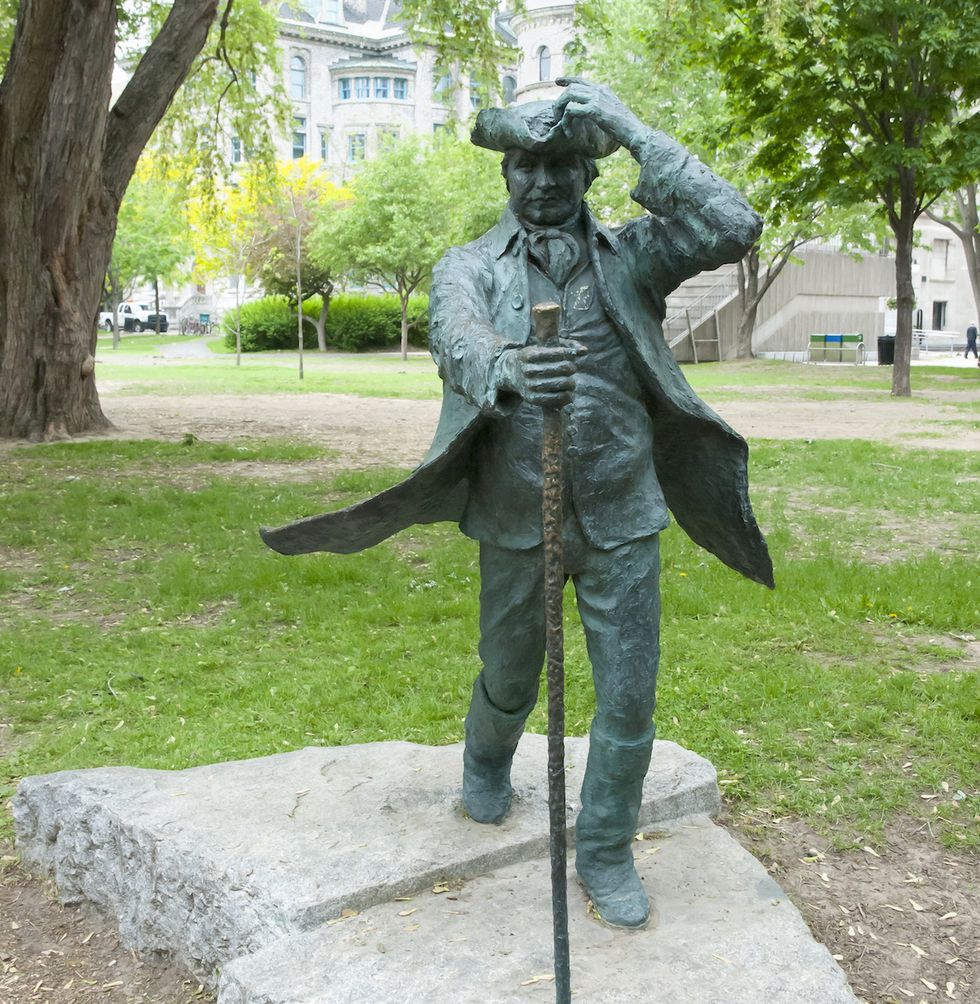A Petition To Remove A Statue Of Slave-Owner James McGill Has Thousands of Signatures
An online petition is demanding the removal of a statue of James McGill, the founder of McGill University whose image has become the latest target of protests calling attention to Canada’s history of colonial oppression. The change.org petition calling for the statue to be removed from campus and replaced with a tree has received almost 3,700 signatures as of Wednesday morning. “Any tree would be better than looking at James McGill,” states the petition.
McGill was a Scottish businessman best known for being the founder of the university that bears his name.
He owned Black and Indigenous slaves and “used the wealth gained by their exploitation to start McGill University,” states the petition.
“There has long been calls for the statue to be removed. McGill has never listened,” it continues.
On its website, the university offers high praise for its founder, calling him a “trader, pioneer and philanthropist.”
“McGill took great care of the welfare of others, including his step-children and the orphan daughter of a friend,” it states.
“This ecumenical and generous spirit manifested itself in his final will, which, after his death in 1813, revealed a bequest to the (Royal Institution for the Advancement of Learning) for the founding of a college.”
This version of events omits the complicating realities of his life, notes Bella Silverman in a February issue of Graphite Publications, including the fact that McGill owned five to seven human beings.
Among the people he owned, states Silverman, were an Indigenous woman named Marie who died in 1783 at the age of 10 or 12, a woman named Sarah who was purchased at the age of 25 and Jacques who died at the age of 80 in 1838.
The exact number of slaves is unknown due to holes in the historical record, she notes.
From his Montreal-based empire, states Silverman, McGill made his fortune through the fur trade and investments in industries that relied on Caribbean plantations where enslaved Africans were forced to cultivate crops in brutal conditions.
“Historical documents, such as a 1797 business ledger, indicate that McGill occupied a consistent holding in large shipments of rum, molasses, and tobacco,” she states.
“Therefore, McGill’s personal fortune was developed and sustained on the backs of enslaved peoples’ labour.”
The petition comes amid renewed calls to remove controversial monuments to Canada’s colonial past, including a statue of Sir John A. Macdonald, Canada’s first prime minister and residential school founder, from Place du Canada Park.


